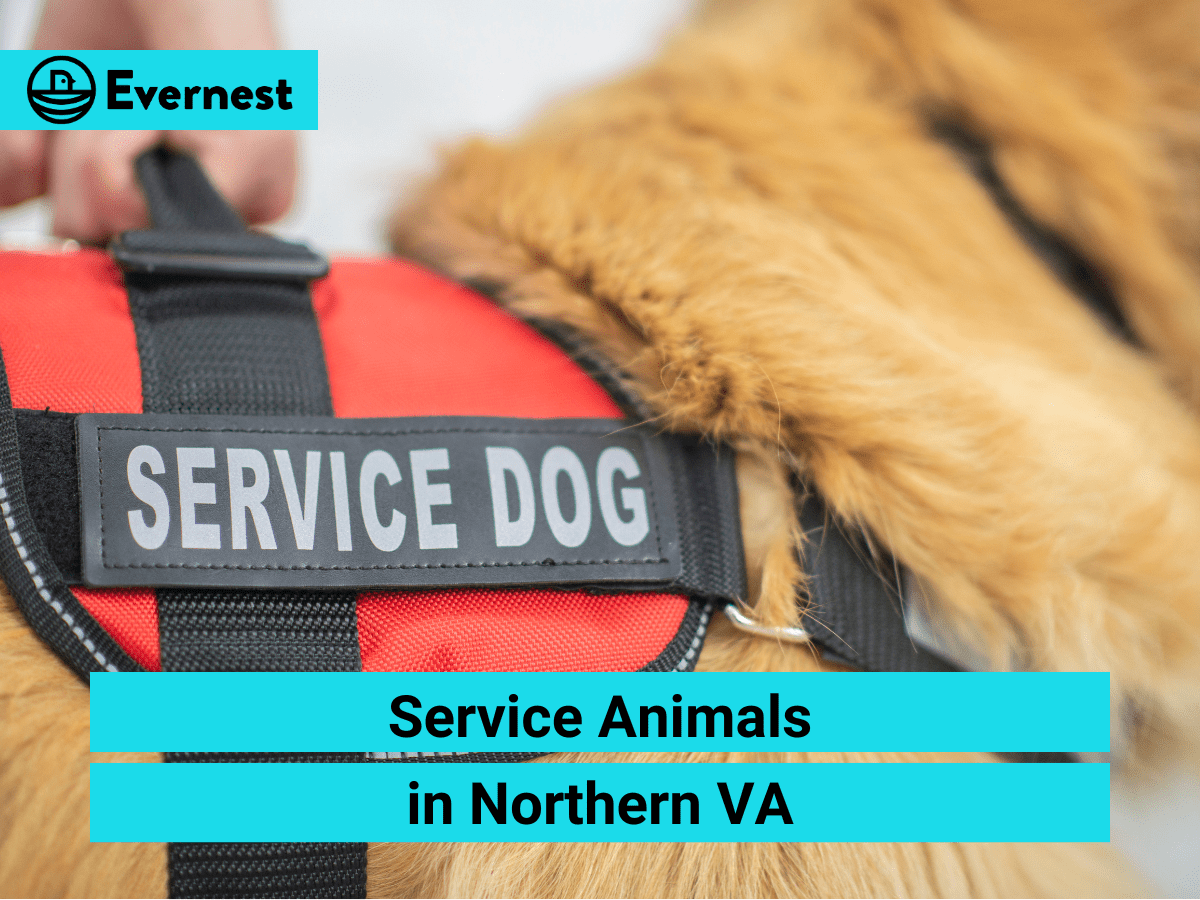Many landlords in Northern Virginia are bound to have tenants with disabilities from time to time. One important issue that landlords must be aware of is the laws surrounding service animals. Understanding the difference between a service animal and a pet and the rights and obligations that come with having a service animal in a rental property is important. In this article, we will explore the topic of service animals in Northern Virginia and provide landlords with the necessary information to navigate this aspect of their rental business.
What is Considered a Service Animal Versus a Pet?
Before delving into the details, it is essential to clarify what constitutes a service animal and how it differs from a pet. Under the Americans with Disabilities Act (ADA), a service animal is defined as a dog or miniature horse that is individually trained to perform tasks or provide assistance to an individual with a disability. These tasks may include guiding individuals with visual impairments, alerting individuals with hearing impairments to sounds, or assisting someone with mobility issues with daily tasks. Service animals play a crucial role in the lives of individuals with disabilities, providing them with independence, assistance, and support in various aspects of their daily routines.
In contrast, pets are animals that provide companionship but do not possess the same training or qualifications as service animals. It is important to note that other animals, such as cats, birds, or reptiles, are not recognized as service animals under the ADA.
Can a Landlord Refuse a Service Animal?
Federal law requires landlords to make reasonable accommodations for individuals with disabilities, including allowing them to have service animals in their rental units. This means that you cannot refuse to rent to someone solely because they have a service animal.
Furthermore, landlords are not allowed to charge additional pet fees or deposits for service animals. These animals are not considered pets, and therefore, they should not be subject to the same fees and regulations that apply to traditional pets in rental properties.
However, there are certain circumstances in which you may be able to deny a request for a service animal. If the service animal poses a direct threat to the health or safety of others, if the animal is out of control and the owner does not take effective action to control it, or if the presence of the service animal would fundamentally alter the nature of the rental property, you may be able to refuse the accommodation. However, it is crucial to consult with legal professionals before making any decisions to ensure compliance with the law.
Additional Service Animal Requirements
Landlords have the right to request documentation that verifies the need for a service animal. However, it is important to handle these requests with sensitivity and respect for the privacy of the tenant. It is advisable to limit the information requested to what is necessary to establish the disability and the need for a service animal. The tenant can provide a letter from a healthcare professional or a disability-related identification card.
How Should Residents Submit Documentation for a Service Animal?
It is recommended that landlords establish a clear process for residents to submit this documentation. This can be through a designated email address, a secure online portal, or in-person appointments. By having a standardized procedure, landlords can ensure that the documentation is properly reviewed and maintained. A property management company can be a useful resource for creating a streamlined process.
When Can a Service Animal be Added to a Lease?
In Northern Virginia, service animals can be added to a lease agreement at any time. If a tenant already resides in the rental property and wishes to obtain a service animal, they should follow the designated process for submitting documentation. Once the documentation is received and verified, the landlord must make the necessary accommodations to allow the service animal in the rental unit. It is important to communicate openly with the tenant to ensure a smooth transition and address any concerns or questions.
Final Thoughts
As a landlord in Northern Virginia, it is important to be aware of the laws and regulations surrounding service animals. Understanding the difference between a service animal and a pet, knowing when and how to accommodate residents with service animals, and being aware of the additional requirements for service animals are all essential aspects of managing a rental property.
By familiarizing yourself with the laws and seeking legal advice when necessary, you can ensure that you are fulfilling your obligations as a landlord while providing equal opportunities for individuals with disabilities. Remember, service animals play a crucial role in assisting individuals with disabilities, and by respecting their rights, you can create an inclusive and welcoming rental environment.
Looking for a property management company in Northern Virginia to assist with disability accommodation and other tenant related matters? Reach out to our local team to learn more about our services!


